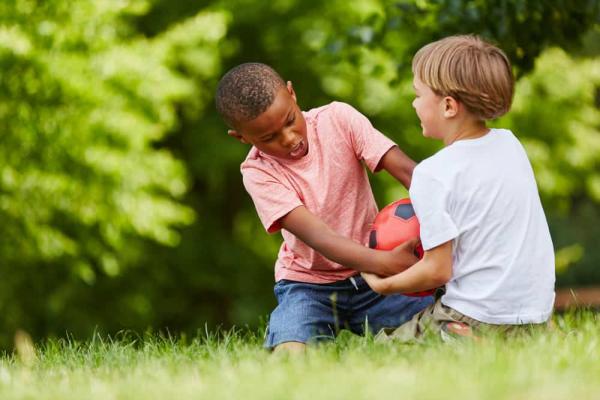
When it comes to friendships, it's sometimes hard to understand why others are mean to you or bully you. It's especially hard for children to understand. That's why they often turn to their parents for help handling stress between friends.
However, handling these issues themselves teach children valuable life lessons. As parents, we can teach our children how to properly interact with other children when they don't get their way - it'll essentially teach our children how to avoid bullying. It can even prevent our kids from being bullied. Additionally, we'll be teaching our children how to be a true friends - even if they don't agree with their friend right away.
Here are three things our children need to know how to do:
1. Ask questions and listen to the answers
In an argument, it's tempting to simply push our point of view constantly. Teach your children to keep their opinions to themselves at first and work to understand why their friend might be feeling that way.
According to Psychology Today, questions like "what do you think?", "what do you want to do?" and "how I can help?" can help your children care about the other child's opinions. "They can open the door to compromise or make it easier for your child to go along with what the friend wants."
Our children need to know that they can ask questions and learn the answers to their questions. It also teaches our children to validate the feelings of their friends. It teaches them sometimes people don't have the same opinions and that's OK - these are fundamental life lessons.
2. Speak to an adult, then talk to their friend
PBS Parentsencourages parents to remember, "Resolving a conflict sometimes requires that your child be able to explain what he or she wants. Help them plan and practice what to say."
Work with your children about expressing their opinions, and encourage them to develop the ability to resolve a conflict on their own. They'll be able to practice with you, but will ultimately be able to handle the issue on their own. This strategy also teaches your child to be confident in who they are and what they feel.
3. Think about how serious the situation is and possibly let it go
Teach your children to think through a situation. Is their friend being mean or do they just not know any better? Did they get physically hurt or emotionally hurt and are lashing out? Depending on how serious the argument is, parents may need to step in, but a little empathy might help your child walk in their friend's shoes and see their side of thing.
It's also important to remind you child that sometimes they need to take a step back and remember that "everyone makes mistakes, and part of being a good friend is being able to forgive and move on."
Children fighting is part of growing up, but teaching your child how to resolve conflict is one of the best skills you can give them. Don't be afraid to sit your child down and discuss how their friends treat them or how they treat their friends. Being involved in your child's friendships is one of the best ways to keep them safe and teach them how to be an empathetic and caring person.

